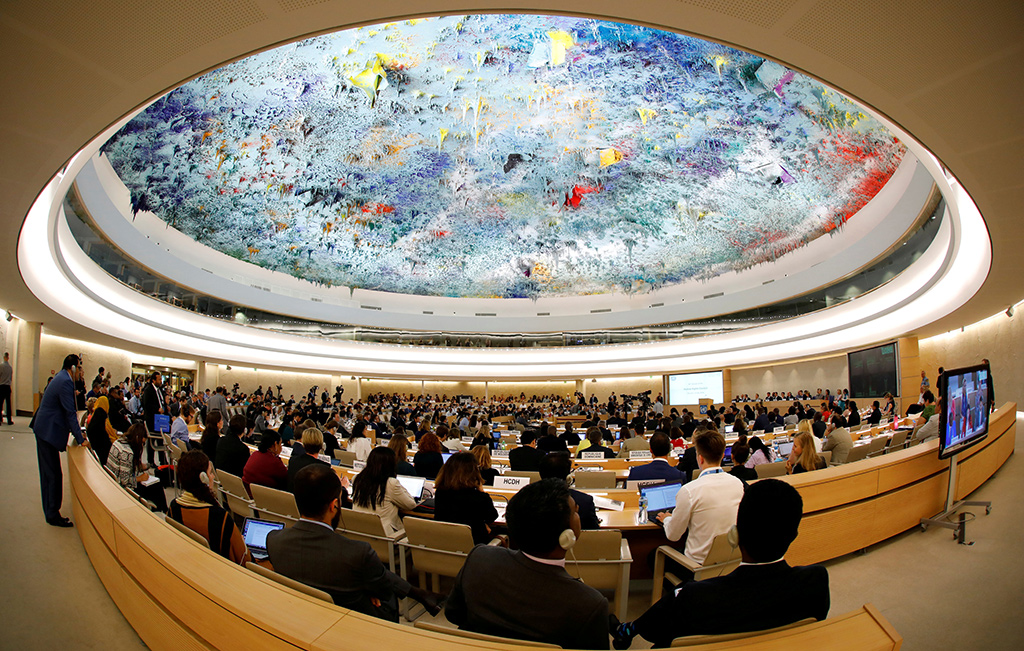The United Nations Human Rights Council (UNHRC) inaugurated its forty-third regular session at the Palais des Nations in Geneva on Monday, February 24 ,a short while ago.
The session was opened under the presidency of Ambassador of Austria Elisabeth Tichy-Fisslberger.
UN member states will reaffirm their commitment to the agenda agreed to by the government of Sri Lanka under Resolution 30/1, and to signal clearly to the government the diplomatic consequences that would result should it seek to terminate its commitments, informed sources said.
United Nations Secretary-General Antonio Guterres, President of the General Assembly Tijani Muhammad-Bande, United Nations High Commissioner for Human Rights Michelle Bachelet, and the Federal Councillor and Head of the Federal Department of Foreign Affairs of Switzerland Ignazio Cassis will deliver keynote statements.
The 43rd session will last through March 20. It will assess member nations' progress toward human rights goals and hear out government officials views.
Issues relating to Sri Lanka are due to be taken up on the 26th of this month. Sri Lanka is set to present 5 proposals before the UNHRC during the session.
The proposals include an official notice that Sri Lanka would be withdrawing from co-sponsoring resolutions 30/1 and 40/1. The proposals are to be presented before the UNHRC by Minister of Foreign Relations Dinesh Gunawardene.
The announcement is significant but not surprising. In recent months both of the leading figures within the new regime have voiced their staunch opposition to the HRC process.
While on the campaign trail in October 2019, President Gotabaya Rajapaksa stated that he did not recognise the agreement made by the previous government, arguing that the country needed to move on from “old allegations” and focus on economic development instead.
As President, he has said that the resolution cannot be entertained in its current form on the basis that “it is not possible for the government to act against its own country.
However it was unclear whether the government’s latest announcement meant it would attempt to bring a new resolution to revoke the current one, or merely refuse to honor its commitments, foreign affairs expert said.
(LI)

